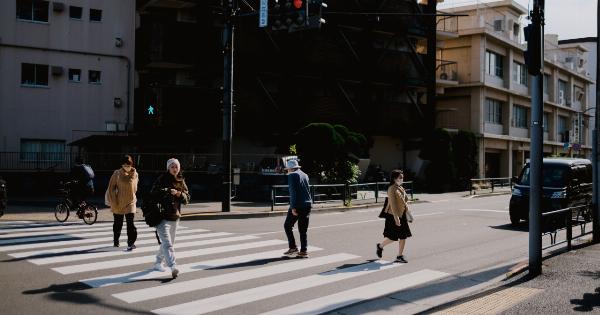One of the most alarming trends in Japan in recent years has been the increase in lonely deaths. A lonely death is a situation where a person dies alone and unnoticed.
While this may seem like an isolated event, it is actually quite common in Japan and has been on the rise over the past few years. In this article, we will explore the reasons behind this trend and what can be done to address it.
What Causes Lonely Deaths?
One of the main causes of lonely deaths in Japan is the aging population. As people age, they become more isolated and are less likely to have social connections. Many elderly people in Japan live alone, without family or friends to check on them.
This makes them more vulnerable to illness or accidents, which can lead to their sudden death. In some cases, elderly individuals may also fear being a burden on their children and choose to live alone, even if it means being isolated.
In addition to the aging population, increasing numbers of young people in Japan are also experiencing loneliness and isolation. Japan is known for its high-pressure work culture and long work hours.
This can leave little time for socialization or building relationships outside of work. Being a part of society in Japan requires conformity to a strict set of cultural and social norms which can make it difficult to connect with others who do not share the same values and experiences.
The Social and Economic Impact of Lonely Deaths
The rise in lonely deaths in Japan has a significant social and economic impact. Family members who are left behind often feel guilt and regret about not being there to prevent the death.
Communities may also feel a sense of responsibility for failing to detect or address the isolation and loneliness of an individual who died alone.
The economic implications are also significant. When a person dies alone, there is no one to take care of their affairs or settle their estate.
This can lead to increased costs for local governments who may have to take care of the deceased’s belongings and property.
Addressing the Issue of Lonely Deaths in Japan
To address the issue of lonely deaths in Japan, there needs to be a multi-faceted approach. One solution is to increase the social safety net for elderly individuals who are living alone.
This can include programs that provide regular check-ins or social events to help combat isolation.
Another solution is to address the underlying social and cultural issues that contribute to loneliness and isolation. Japan is famously homogenous and has a strong emphasis on conformity.
Breaking down these barriers and promoting diversity and acceptance can help foster stronger social connections and reduce loneliness.
Finally, there needs to be greater public awareness of the issue of lonely deaths and its impact on society. Individuals can take steps to prevent lonely deaths by reaching out to family members, friends, and neighbors who may be at risk of isolation.
Community groups and organizations can also work to identify individuals who are at risk and provide support and resources to help them connect with others.
Conclusion
Lonely deaths are a growing problem in Japan, with significant social and economic consequences. To address this issue, there needs to be a comprehensive approach that addresses the root causes of loneliness and isolation in Japanese society.
By promoting stronger social connections and breaking down cultural barriers, we can create a more connected and compassionate society that takes care of each other.































